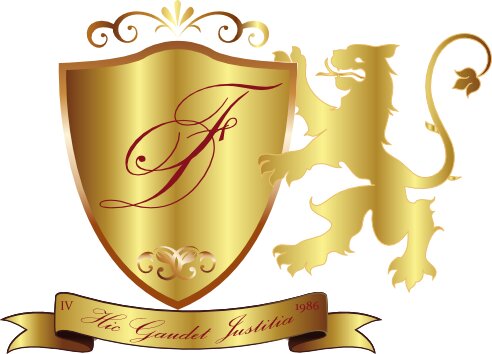Best Guardianship Lawyers in Turin
Share your needs with us, get contacted by law firms.
Free. Takes 2 min.
List of the best lawyers in Turin, Italy
About Guardianship Law in Turin, Italy
Guardianship (“amministrazione di sostegno” or “tutela”) in Turin, Italy, is a legally regulated process designed to protect those who cannot fully manage their personal or financial affairs due to age, disability, or incapacitation. The Italian Civil Code outlines the types of guardianship, criteria for appointment, and guardians’ responsibilities and duties. The local courts in Turin oversee these cases to ensure the protection and best interests of vulnerable individuals.
Why You May Need a Lawyer
Seeking guardianship can be a complex legal process, especially if there are disputes among family members, questions about the ward's (the protected person's) best interests, or complications with property and finances. Common situations where legal advice is essential include:
- Applying to become a guardian for an elderly parent or disabled child
- Contesting the suitability of a proposed guardian
- Managing the ward’s assets or dealing with estate issues
- Handling cross-border guardianship concerns, especially involving foreign nationals
- Understanding the legal obligations and reporting requirements as a guardian
- Terminating a guardianship or addressing potential abuse by a guardian
A lawyer’s expertise ensures that all legal procedures are correctly followed and that the rights of all parties are protected.
Local Laws Overview
In Turin, as throughout Italy, guardianship is governed primarily by the Italian Civil Code. Key aspects include:
-
Types of Guardianship:
- Amministrazione di sostegno (Support Administration): A flexible form of guardianship for those who retain some capacity.
- Tutela (Tutorship): Typically for minors or adults without legal capacity.
- Curatela (Curatorship): For persons with partial incapacity.
- Initiating Guardianship: An application must be filed with the local court (“Tribunale di Torino”). The court evaluates the case and appoints a guardian if necessary.
- Guardian’s Duties: Manage the ward’s affairs in good faith, file regular reports, and seek court approval for significant decisions.
- Legal Safeguards: The court supervises the guardian’s actions and can remove a guardian who acts improperly or fails in their duties.
- Termination: Guardianship may end automatically (for example, when a minor turns 18) or by court order if the conditions requiring guardianship change.
Frequently Asked Questions
What is guardianship in Italy?
Guardianship is a legal arrangement in which a court appoints an individual (the guardian) to make decisions and manage the affairs of someone unable to do so themselves, due to age or incapacity.
Who can apply to be a guardian in Turin?
Family members, close friends, or professionals may apply. The court will evaluate applicants and appoint the person considered most suitable.
How do I start a guardianship proceeding?
A formal application must be filed with the Turin Court, typically including medical certification of incapacity. The court will notify necessary parties and schedule a hearing.
What are the responsibilities of a guardian?
Guardians manage the ward’s personal welfare and property, keep detailed records, and report periodically to the court, seeking approval for significant actions.
Can the guardian make all decisions for the ward?
It depends on the type of guardianship. Some arrangements only allow limited decision-making. The court defines the scope in each case.
What if there is a disagreement about who should be guardian?
The court will consider the ward’s best interests, hearing evidence from all sides before making a final decision.
How long does guardianship last?
Guardianship lasts until the conditions that warranted it no longer exist, such as recovery or legal adulthood, or until the court determines it should end.
Is it possible to challenge or change the guardian?
Yes. Concerned parties may request a review by the court if they believe the guardian is unfit or if circumstances change.
What are the reporting and oversight requirements?
Guardians must submit periodic financial and welfare reports to the court and seek specific permissions for major decisions, ensuring transparency and oversight.
What if the ward or their family does not agree with the court’s decision?
Decisions can generally be appealed through the proper legal channels within a set period after the ruling.
Additional Resources
For those seeking more information or assistance, consider these resources:
- Tribunale di Torino (Turin Civil Court): The local court handling guardianship matters.
- Comune di Torino - Servizi Sociali: The social services office provides guidance for families facing guardianship issues.
- Ordine degli Avvocati di Torino: The local bar association can refer to qualified lawyers specializing in guardianship.
- Associazioni di tutela: Local advocacy groups, especially for disability or elder care, can offer support and information.
Next Steps
If you believe that guardianship may be necessary for a loved one or need to respond to a guardianship action, consider the following steps:
- Gather relevant medical, financial, and personal documents relating to the person in need of protection.
- Consult with a qualified lawyer specializing in guardianship law in Turin, who can provide tailored advice and begin the necessary legal proceedings.
- Contact local organizations or the social services office for further guidance and social support during the process.
- Attend any required court hearings, providing complete and honest information to assist the court in making an informed decision.
- Keep records of all decisions and actions taken if you become a guardian, and maintain open communication with the court and concerned family members.
Legal issues in guardianship can be emotional and complex. A professional legal advisor ensures that you comply with all requirements and that the interests of the vulnerable person are protected to the fullest extent of the law.
Lawzana helps you find the best lawyers and law firms in Turin through a curated and pre-screened list of qualified legal professionals. Our platform offers rankings and detailed profiles of attorneys and law firms, allowing you to compare based on practice areas, including Guardianship, experience, and client feedback.
Each profile includes a description of the firm's areas of practice, client reviews, team members and partners, year of establishment, spoken languages, office locations, contact information, social media presence, and any published articles or resources. Most firms on our platform speak English and are experienced in both local and international legal matters.
Get a quote from top-rated law firms in Turin, Italy — quickly, securely, and without unnecessary hassle.
Disclaimer:
The information provided on this page is for general informational purposes only and does not constitute legal advice. While we strive to ensure the accuracy and relevance of the content, legal information may change over time, and interpretations of the law can vary. You should always consult with a qualified legal professional for advice specific to your situation.
We disclaim all liability for actions taken or not taken based on the content of this page. If you believe any information is incorrect or outdated, please contact us, and we will review and update it where appropriate.









